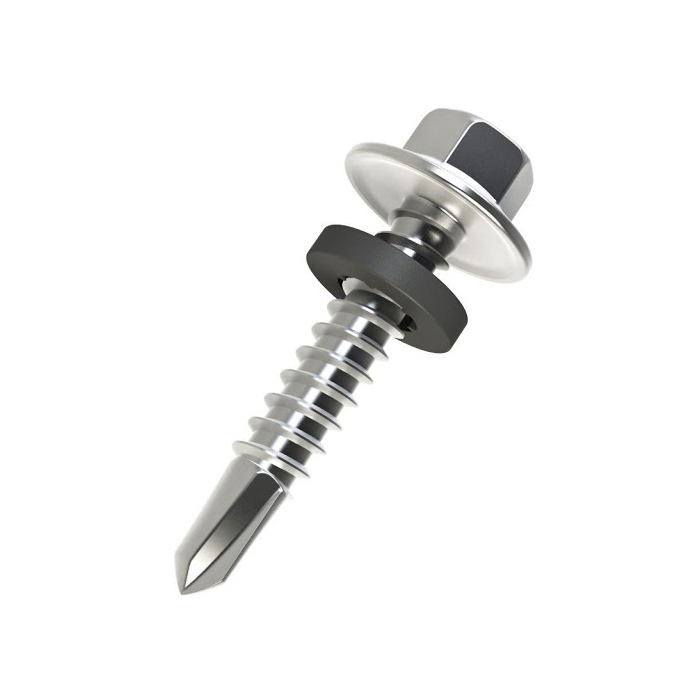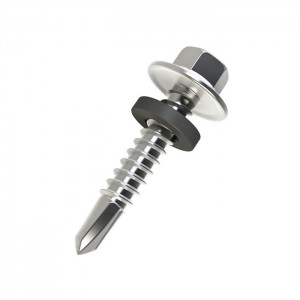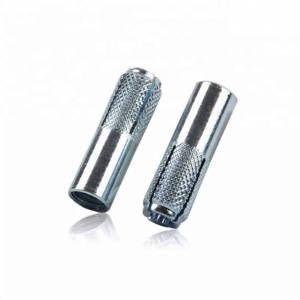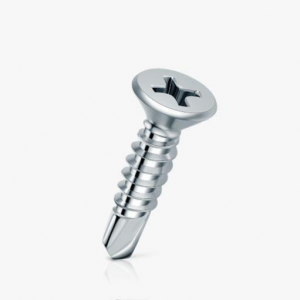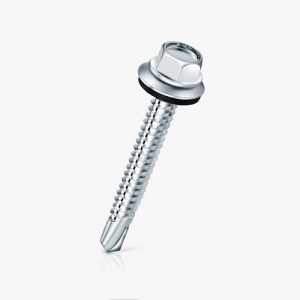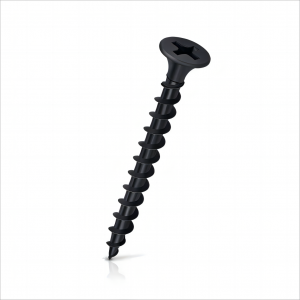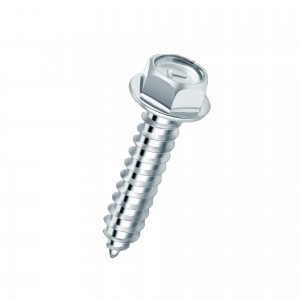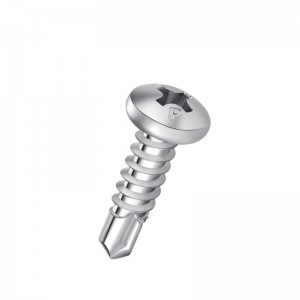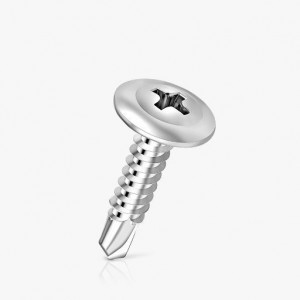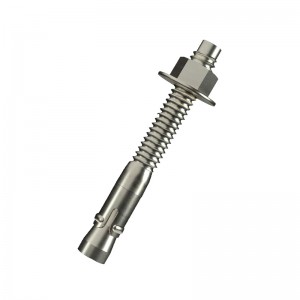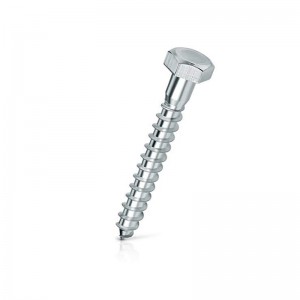Handan Double Blue Fastener
Hex Flange Head Self Drilling Screw
Description
Hex aFlange head self-drilling screws from Handan Double Blue Fastener are engineered to be corrosion resistant and come in various sizes and materials.
Depending on the size, the applications of the hex self-drilling screws can vary – the smaller screws are used in applications like fixing thin gauge metals and fixing metal to wood. The larger screws are used in roofing and other industries which require self-drilling through tough metals. Our screws come in stainless steel, alloy steel, carbon steel, and other materials that prevent corrosion. If the hex head self-drilling screws are used in extremely hard materials, it is advised to use them after a pilot hole has been drilled.
Our screws are case hardened and heat-treated for applications requiring fastening of soft materials on hard ones. With a lower installation torque, the threads on these screws allow for a quick transition from drilling to tapping. For effective penetration, make sure that at least three threads of the fastener are inside the material.
Application of Hex Head Self Drilling Screw
Roofing screws are designed specifically for all kinds of roofing applications. With a variety of types of products and good quality, our Roofing screws will provide you the best solution for fastening different kinds of roofing structures.
Commonly used to fasten metal, plastic, and fiberglass roofing sheets to metal or wood structures: the roofing screws with drill points for metal structures and the ones with sharp points for wood structures.
Ideal for fastening the overlap roofing sheets.
Product Installation
Choose the appropriate screw size and length for the project.
Mark the location where the screw will be inserted.
Use a power tool or screwdriver to drive the screw into the wood, making sure to keep it straight and flush with the surface of the wood.
If necessary, countersink the screw head below the surface of the wood and fill the hole with wood filler for a smooth finish.
Other Relevant Content
Wood screws should be chosen based on the type of wood being used, as some woods require different thread patterns or screw materials.
Pre-drilling may be necessary for hardwoods or when working close to the edge of the wood to prevent splitting.
Wood screws should be tightened snugly but not over-tightened, as this can cause the wood to crack or split.
When removing a wood screw, it is important to use a screwdriver that fits the screw head properly to prevent stripping the head.
contact us to get best quotation
- English
- French
- German
- Portuguese
- Spanish
- Russian
- Japanese
- Korean
- Arabic
- Irish
- Greek
- Turkish
- Italian
- Danish
- Romanian
- Indonesian
- Czech
- Afrikaans
- Swedish
- Polish
- Basque
- Catalan
- Esperanto
- Hindi
- Lao
- Albanian
- Amharic
- Armenian
- Azerbaijani
- Belarusian
- Bengali
- Bosnian
- Bulgarian
- Cebuano
- Chichewa
- Corsican
- Croatian
- Dutch
- Estonian
- Filipino
- Finnish
- Frisian
- Galician
- Georgian
- Gujarati
- Haitian
- Hausa
- Hawaiian
- Hebrew
- Hmong
- Hungarian
- Icelandic
- Igbo
- Javanese
- Kannada
- Kazakh
- Khmer
- Kurdish
- Kyrgyz
- Latin
- Latvian
- Lithuanian
- Luxembou..
- Macedonian
- Malagasy
- Malay
- Malayalam
- Maltese
- Maori
- Marathi
- Mongolian
- Burmese
- Nepali
- Norwegian
- Pashto
- Persian
- Punjabi
- Serbian
- Sesotho
- Sinhala
- Slovak
- Slovenian
- Somali
- Samoan
- Scots Gaelic
- Shona
- Sindhi
- Sundanese
- Swahili
- Tajik
- Tamil
- Telugu
- Thai
- Ukrainian
- Urdu
- Uzbek
- Vietnamese
- Welsh
- Xhosa
- Yiddish
- Yoruba
- Zulu
- Kinyarwanda
- Tatar
- Oriya
- Turkmen
- Uyghur




